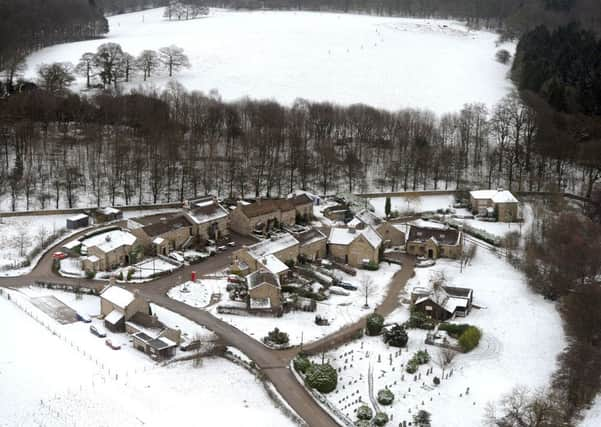Memories of YTV, by Emmerdale’s Michael Russell


In 1978 I was not long out of university, trying to become a writer, scraping a living on the edge of Exmoor as a milk recorder and in odd farming jobs. Out of nowhere, the producer of Emmerdale Farm contacted me. He had seen a play I’d written. I hoped he wanted me to write for Emmerdale. He offered me a job as the programme’s script editor.
I moved from Exmoor to the Burley Road, but the world in my head wasn’t so far from North Devon. Emmerdale had farming at its heart. I learned to love the countryside north of Leeds. It wasn’t the Dales but within a short distance of one of England’s great cities were rural communities and landscapes of beauty and character. For a while I stayed in Headingley, but eventually I moved out to live by the Nidd, just north of Harrogate.
Advertisement
Hide AdAdvertisement
Hide AdFifty percent of the show was shot on location, using pantechnicon-sized mobile studios meant for the likes of race meetings. How we got them out to fields and forests and moorland was a triumph of ingenuity over sense. It was rare for soap operas to shoot outside.
Even Coronation Street had no ‘real’ street. But somehow Emmerdale managed not only to do it, but do it in the middle of nowhere. Even the farm at Leathley was a working farm.
Part of the style of the programme’s creator, Kevin Laffan, was butting broad comedy against drama. There was nothing else like the eccentricity of Ronnie Magill’s Amos. It was as much a part of the show’s distinctiveness as its rural storylines and location work.
I worked at YTV for ten years, always maintaining a connection with Emmerdale. I became a regular writer. In my last two years I was the producer, and a gatekeeper between old and new. With the next producer ‘Farm’ went. The programme pushed into a future where the farming faded, not entirely, but it would never again be at its heart.
Advertisement
Hide AdAdvertisement
Hide AdThe cast would grow ever bigger and so would the programme’s success. With change went some of Emmerdale’s uniqueness. It would never celebrate the countryside of Yorkshire in the same way or give a voice to its rural community. But some things are in the DNA. Amos may be long gone but in the Dingles his eccentric spirit has lived on. YTV was an extraordinary place: a great drama department; a hugely creative light entertainment department with the buzz of live theatre; a documentary department whose output has never been surpassed; award-winning children’s shows; ever-inventive local programming. Most of it has gone, along with the strong, vibrant regional companies that were once ITV. It’s not that ITV doesn’t make fine programmes, but something was lost richer than what replaced it. Nowhere was that truer than at Yorkshire Television.
The days when I got my first writing job because I knew about farming have gone too, but that link never has. I left YTV in 1988 when I realised working as a producer wasn’t getting any writing done. But the first new writing job I got was on All Creatures Great and Small, still Yorkshire, still farming! Even now the connection is there.
The second of my crime novels has been published, set in Ireland and New York before the Second World War. The main character is a detective, but he grew up on a farm in the Wicklow Mountains. He can still shear a sheep as well as find a killer.
And looking out from where I live, on the edge of those mountains, it’s not so different from the Yorkshire countryside that was part of my life for almost twelve years.
• Michael Russell’s new novel The City of Strangers is out now, published by Harper Collins, £7.99.